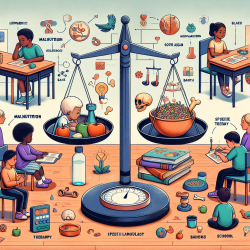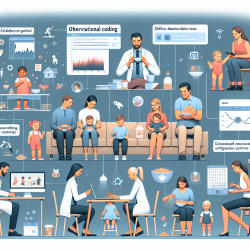Understanding Ourselves Together: Insights from American Philosophy
In the field of speech-language pathology, especially when working with children, the ability to communicate effectively and understand diverse perspectives is paramount. Naoko Saito's "Making Sense of Ourselves with Others: Review of American Philosophy in Translation" offers profound insights into how American philosophy can be utilized to address social anxieties and enhance democratic education. These insights can be particularly beneficial for practitioners in the realm of online therapy services, such as those provided by TinyEYE.
Exploring Social Anxieties Through American Philosophy
Saito identifies three primary anxieties that challenge our democratic societies: social inclusion, risk management, and existential meaning. These anxieties are not only relevant to the broader societal context but also resonate within the microcosm of educational and therapeutic settings. Understanding these anxieties can help practitioners create more inclusive and effective therapeutic environments.
- Social Inclusion: As societies become more diverse, the need for inclusive practices in educational settings becomes critical. Practitioners must strive to include diverse perspectives and ensure all voices are heard, fostering a sense of belonging and collaboration.
- Risk Management: The interconnectedness of our world, amplified by technology, necessitates a balanced approach to risk. In therapy, this translates to creating safe spaces for children to express themselves while managing the inherent uncertainties of therapeutic outcomes.
- Existential Meaning: Saito's exploration of existential meaning highlights the importance of finding purpose beyond material success. For children, this means encouraging exploration, creativity, and personal growth, which are essential for holistic development.
The Role of Translation in Therapy
Saito's emphasis on translation as a metaphor for understanding and cooperation is particularly relevant for speech-language pathologists. The act of translating experiences and emotions into words is central to therapy. It involves not just linguistic translation but also cultural and emotional translation, helping children articulate their feelings and thoughts in ways that are meaningful to them and understandable to others.
Practitioners can apply this concept by:
- Encouraging children to express themselves in multiple ways, using art, music, or storytelling as alternative forms of communication.
- Facilitating conversations that allow children to explore and refine their understanding of the world around them.
- Creating a therapeutic environment that values and respects diverse perspectives, fostering mutual understanding and empathy.
Implications for Online Therapy
For companies like TinyEYE, which provide online therapy services, the insights from Saito's work can be transformative. Online platforms offer unique opportunities to implement these philosophical concepts, allowing for innovative approaches to therapy that are inclusive and adaptable to the needs of diverse populations.
By integrating the principles of American philosophy into their practice, therapists can enhance their ability to connect with children, understand their unique challenges, and foster environments that promote personal and collective growth.
To read the original research paper, please follow this link: Making Sense of Ourselves with Others: Review of American Philosophy in Translation by Naoko Saito.










